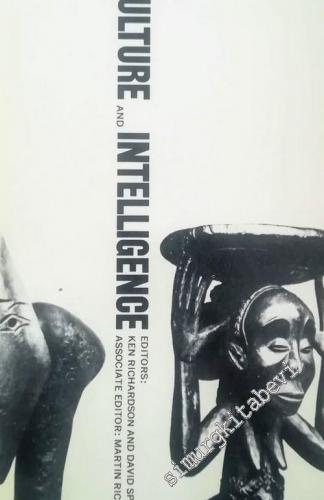1199062674
448618

https://www.simurgkitabevi.com/race-culture-and-intelligence-1972
Race, Culture and Intelligence - 1972 #smrgSAHAF
0.00
The editors lay out a map of the book in their Foreword: ‘After an opening chapter by Liam Hudson which sets the stage and provides the historical background. the book divides into three parts. The first is psychological and deals with the nature of intelligence. its development and relationship to school progress. The second part is the domain of the biologists. who discuss the genetics of IQ and intelligence. and the interpretation of race differences in these capacities. Then attention is turned to development and aconsideration of environmental influences on brain growth. In the final part the scope is broadened to look at the social world, both as the context for the development of intelligence and as the context for the debate about race differences. The c'oncluding chapter draws together the major threads of the argument and discusses some of the educational implications. particularly those for compensatory programmes.'
Ken Richardson and David Spears are membersof the Neurobiolooical Research Group at The Open University. Martin Richards is University Lecturer in Social Psychology at Cambridge University.
The editors lay out a map of the book in their Foreword: ‘After an opening chapter by Liam Hudson which sets the stage and provides the historical background. the book divides into three parts. The first is psychological and deals with the nature of intelligence. its development and relationship to school progress. The second part is the domain of the biologists. who discuss the genetics of IQ and intelligence. and the interpretation of race differences in these capacities. Then attention is turned to development and aconsideration of environmental influences on brain growth. In the final part the scope is broadened to look at the social world, both as the context for the development of intelligence and as the context for the debate about race differences. The c'oncluding chapter draws together the major threads of the argument and discusses some of the educational implications. particularly those for compensatory programmes.'
Ken Richardson and David Spears are membersof the Neurobiolooical Research Group at The Open University. Martin Richards is University Lecturer in Social Psychology at Cambridge University.
Yorum yaz
Bu kitabı henüz kimse eleştirmemiş.





















